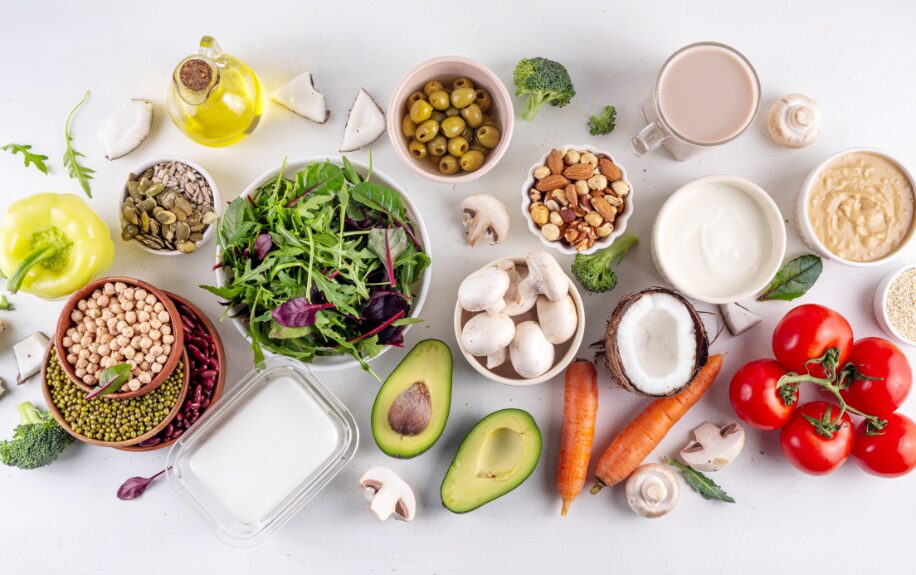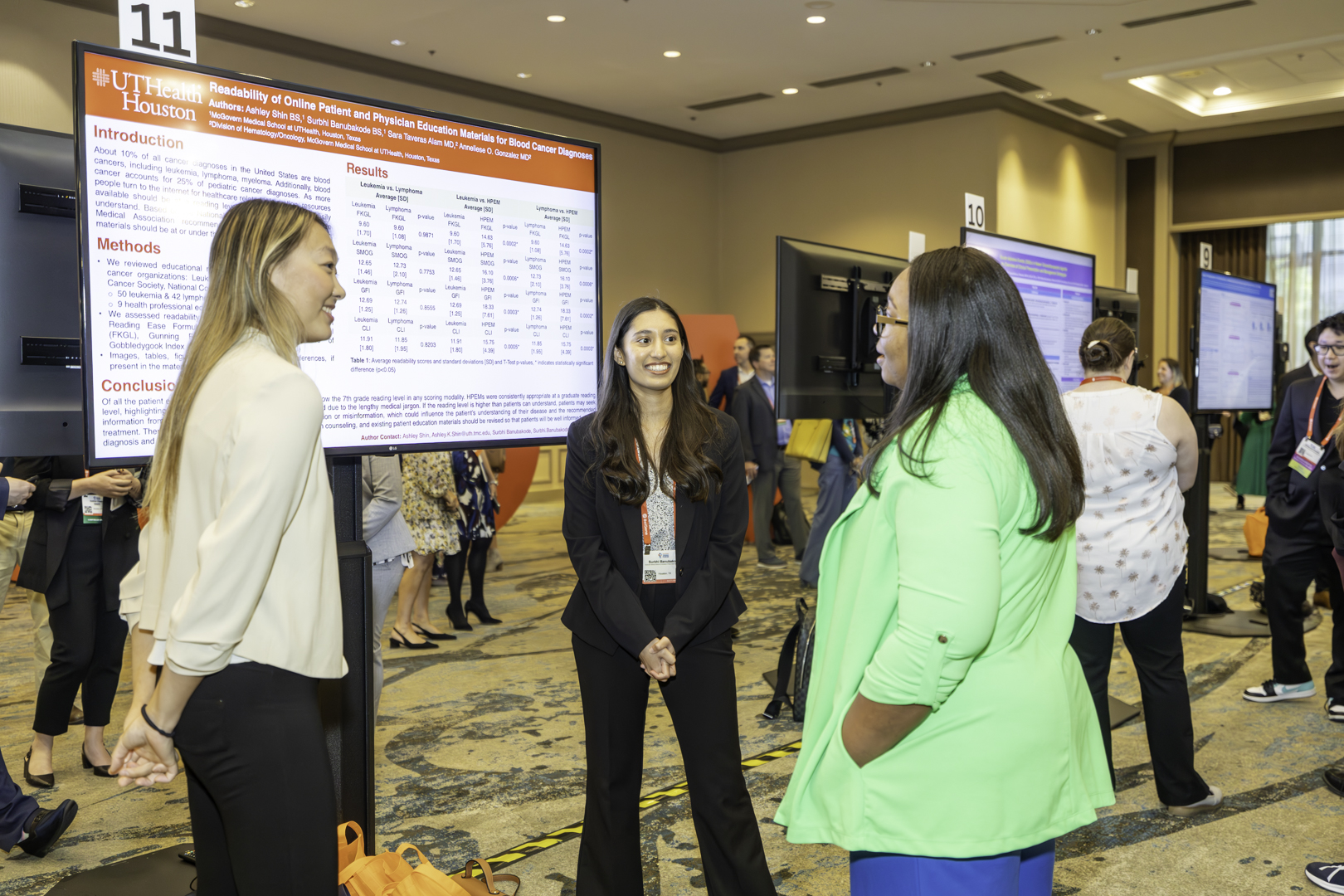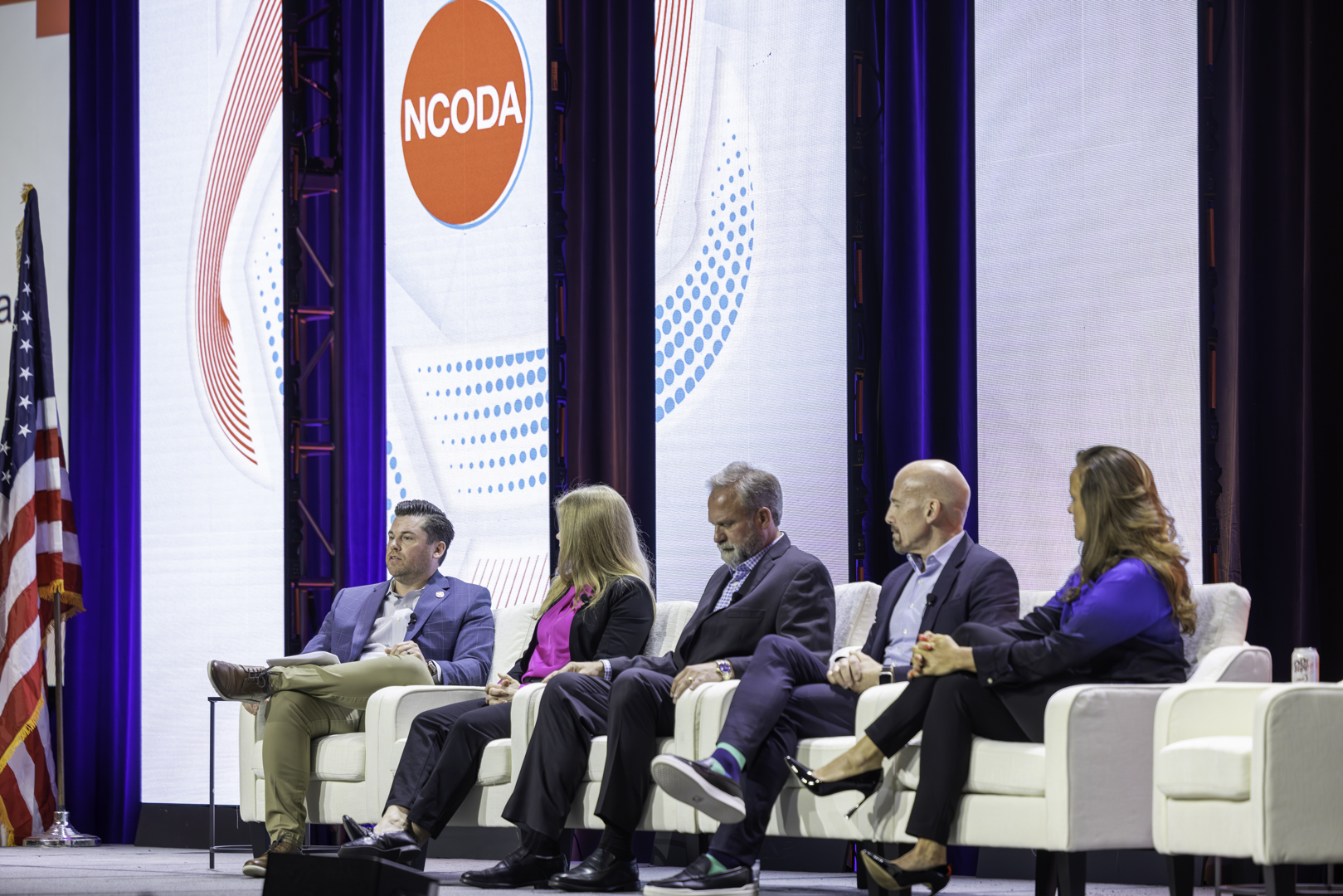2026 International Spring Forum
April 15, 2026 | 12:00 PM EST
Low-Dose Abiraterone with a Low-fat Diet in Metastatic Prostate Cancer
Published Date: October 15, 2025
Share

Abiraterone acetate is an orally administered, potent, and selective irreversible inhibitor of cytochrome P450 17 (CYP17) indicated in combination with prednisone for the treatment of metastatic castration-resistant prostate cancer (CRPC) or metastatic high-risk castration-sensitive prostate cancer (CSPC).1
CYP17 is a key enzyme involved in androgen biosynthesis and is responsible for the production of extragonadal androgens. Persistent androgen signaling due to the upregulation of CYP17 results in stimulation of tumor growth, which can occur even as the disease becomes castrate-resistant.2,3
Abiraterone was originally approved in 2011 for metastatic CRPC in patients who had received prior docetaxel therapy but its use quickly expanded to include all metastatic CRPC patients regardless of prior therapy.4,5 Since then, it has become one of the most widely prescribed first-line medications for metastatic CRPC and has also been approved for use in metastatic high-risk CSPC.6
Unfortunately, abiraterone can be a significant financial burden for these patients with an estimated monthly cost of $8,000 to $11,000 when given at the approved standard treatment dose.7
There are two formulations of abiraterone acetate available: the original, non-micronized formulation (Zytiga®, Abirtega™, generic) and a newer, micronized form (Yonsa®). The non-micronized formulation is approved at a dosage of 1,000mg once daily and must be taken on an empty stomach at least one hour before or two hours after a meal as food substantially increases systemic exposure to the drug.1
Various pharmacokinetic studies have shown that a low-fat meal increases systemic exposure to abiraterone at lower doses.3,8 Nonstandard diets could contribute to inconsistent systemic exposure potentially putting patients at risk for known adverse effects such as hypertension, hypokalemia, edema, hot flashes, arthralgia, hepatotoxicity and cardiac events.2,8
In order to address the issues of cost and pill burden, several studies have introduced the idea of taking advantage of the food interaction with abiraterone.2,8,9
A retrospective review conducted in Canada revealed that 21 patients received low-dose abiraterone (250mg to 500mg once daily) due to financial restrictions. There was a nonsignificant trend in prostate-specific antigen (PSA) response rate in favor of the standard treatment group and no significant differences between biochemical progression-free survival (PFS), median treatment duration or median overall survival.9
In 2018, a randomized phase II clinical trial of 72 patients compared abiraterone 250mg once daily given with a low-fat meal to standard treatment dosing. No differences were seen in efficacy endpoints such as PSA response, PFS, or androgen levels, despite having higher abiraterone concentrations in the standard treatment group. There were also no significant differences among safety outcomes between the two groups.
Additionally, this study discussed a significant estimated savings of $100,000 to $300,000 per patient depending on the length of their treatment.7
Critiques from this study included using the logarithmic PSA change at 12 weeks. As this is not a clinically validated surrogate endpoint, the lack of centralized PSA measurements potentially led to variability between labs, and lower abiraterone troughs in the low-dose group.7,10
These issues have been addressed by Szmulewitz et al. and Tannock in a series of rebuttals that incorporate the practical implications of initiating low-dose abiraterone.11,12
Fred Hutchinson Cancer Center (FHCC) has utilized the dosing strategy of low-dose abiraterone administered with a low-fat meal for patients for whom the Food and Drug Administration (FDA)-approved dose would have been cost-prohibitive. The purpose of this case series review was to describe the efficacy and safety of the low-dose approach, contribute compelling evidence for potential cost savings to the healthcare system, and provide dietary recommendations used in patient education for this dosing strategy from a single-center experience.
Methods
Pharmacy dispensing records were used to identify dispensed prescriptions for abiraterone 250mg tablets between April 13, 2019, and April 13, 2020, at the FHCC outpatient pharmacy. Clinical information, including baseline patient characteristics, incidence of disease progression, adverse effects, and treatment outcomes, was gathered through review of electronic medical records for these patients from 2018 to 2020.
Disease progression was defined as an increase in PSA greater than 25% and more than 2ng/mL above nadir, confirmed by progression at two timepoints at least three weeks apart according to the Prostate Cancer Clinical Trials Working Group 3 (PCWG3) criteria.13
Informed consent was not required as this study was determined to be exempt by the University of Washington Institutional Review Board.
Case Series
A total of 13 patients with metastatic prostate cancer who were treated at the FHCC Genitourinary Oncology Clinic were identified. The median duration of treatment with low-dose abiraterone with a low-fat meal was 15 months (the range was two to 27 months). Out of the 13 patients evaluated, 11 had prior treatment including brachytherapy, radiation therapy and chemotherapy. The patients were mostly White and had an Eastern Cooperative Oncology Group (ECOG) performance status of ≤1 with a mean age of 75 years. Detailed patient characteristics are outlined in Table 1.
All patients were started on low-dose abiraterone for financial reasons after citing high copays for standard-
dose therapy. The average monthly cost to these patients for standard-dose abiraterone prior to deciding on the low-dose approach ranged from $1,800 to $5,800. This equated to a $21,600 to $69,600 annual cost to the patient prior to any financial assistance.
FHCC has a robust pharmacy billing program that explores patient assistance and other funding avenues for patients. The patients in this case series either did not qualify for these programs or preferred to start treatment while financial aid was being investigated. The longest ongoing duration of therapy at the time of follow-up was 27 months, which would have cost the patient $48,600 to $156,600 for the course of treatment with standard-dose abiraterone.
While all patients were provided with low-fat diet education, the documented detail of education varied greatly. Three patients were educated per FHCC dietician recommendations specified in Table 2.
For five out of the 13 patients, the only instruction given to maintain a low-fat diet was to keep their breakfast under 10g of fat. One of these patients did not eat typical American foods or speak English, which made it difficult for them to understand what to eat or avoid. The remaining five patients did not receive any specific low-fat diet education per the chart review.
Only two patients experienced PSA progression with one after 3.8 months and the other after 14.2 months. Five patients replaced prednisone with dexamethasone due to asymptomatic elevations in their PSA. Three of these patients did not meet the PCWG3 criteria for PSA progression while the remaining two patients progressed but continued on low-dose abiraterone treatment with dexamethasone. One patient had a decline in performance status from ECOG 3 to 4; however, they also had significant disease burden prior to abiraterone initiation and passed away due to complications not related to their malignancy.
At the end of the study period, one patient who had been on abiraterone for 14 months was in the process of switching therapies due to suspected abiraterone resistance pending insurance approval. The remaining six patients responded to treatment without dose modifications. At the time of this review 11 out of 13 patients continued to respond appropriately on low-dose treatment as specified in Table 1.



Three patients had issues with elevations in their alanine aminotransferase (ALT) and aspartate aminotransferase (AST). Interestingly, the three patients who experienced ALT and AST elevations did not appear to receive specific low-fat meal recommendations from the dietician or the nurse prior to initiating therapy.
Upon further evaluation of these patients’ diets, all were unknowingly eating food considered to be greater than 10g of fat according to the dietician’s recommendations. However, none of these patients were advised to modify their diets. Instead, these patients either continued on 250mg once daily after holding the medication for one month, needed to decrease to 250mg every other day, or discontinued therapy to switch to enzalutamide.
Other notable and known adverse events attributed to abiraterone included hypertension (10 patients), hypokalemia (five patients) and edema (three patients), which were managed with medications if necessary and did not necessitate holding treatment or dose reduction.
Discussion
There are limited but emerging data evaluating the efficacy and safety implications of low-dose abiraterone with a low-fat meal. The rationale for utilizing the interaction between abiraterone and low-fat food has been demonstrated in a phase II trial and a retrospective review which allude to the financial burden that standard-dose abiraterone can pose on patients.7,9
The current dose approved by the FDA for abiraterone for the treatment of metastatic CRPC and metastatic high-risk CSPC is 1,000mg daily with prednisone on an empty stomach, which requires up to four 250mg tablets.4–6 Systemic exposure to abiraterone has been shown to be elevated approximately fivefold to sevenfold when given with a low-fat meal and approximately tenfold to seventeenfold when given with a high-fat meal.1,2
A pharmacokinetic analysis of healthy subjects and patients with metastatic CRPC demonstrated that abiraterone taken with a low-fat or high-fat meal yielded a bioavailability that was 3.8 and 7.6 times higher, respectively, than when taken in a fasted state.3
These studies provided the justification to consider low-dose abiraterone with a low-fat meal in order to mitigate the financial burden associated with standard-dose treatment.
Initiating patients on a 250mg daily regimen would cut their monthly expenses by 75%, a significant reduction given the high cost of abiraterone. In this study, utilizing the low-dose approach decreased the cost to the patient to approximately $450 to $1,450 per month, $5,400 to $17,400 per year, or $12,150 to $39,150 for a 27-month course of therapy.
This was similar to the estimated cost savings implicated in the 2018 trial by Szmulewitz et al.7
The National Comprehensive Cancer Network Clinical Practice Guidelines in Oncology for Prostate Cancer Version 1.2026 list the strategy of 250mg standard formulation abiraterone once daily with a low-fat meal for patients who will not take or cannot afford the standard dose of 1,000mg/day.
A major concern surrounding the low-dose approach is inconsistencies with low-fat-diets, resulting in questionable efficacy and safety outcomes when compared to standard-dose abiraterone.7–11
In one pharmacokinetic analysis, there was only a twofold increase in abiraterone exposure after a high-fat meal and minimal difference after a low-fat meal. However, a noted limitation of this study was the lack of a definition and standardization of low- and high-fat diets.8
In addition to interpatient variability, non-standardized diets could contribute to over- or underdosing which also puts patients at a higher risk for experiencing adverse effects.2,8
An FHCC dietician provided specific low-fat food recommendations (see Table 2) that were distributed among the nurses to include in their abiraterone counseling sessions. However, there was no standardized education tool which may explain why only three patients were documented to have received in-depth education on low-fat foods. One patient, unfamiliar with the recommended food, had a language barrier and a primarily East Asian diet, making it difficult to assess which foods he was eating with abiraterone.

Specific food recommendations for abiraterone were unaddressed in prior studies.7,9 As a result of this case series and in collaboration with a dietician, we have made dietary recommendations for patients on low-dose abiraterone and recommend checking with patients three months after low-dose initiation to ensure understanding and compliance with these recommendations.
At the time of the last data point, most patients in this series remained on treatment, with a median treatment duration of 15 months (two to 27 months) and median follow-up time of 19 months (two to 32 months). Only two patients experienced PSA progressions according to the PCWG3 criteria, one after 3.8 months and the other after 14.2 months. The median duration of treatment in the trials that studied standard-dose abiraterone was eight months and median time to PSA progression was 11.1 months.4,5 Retrospective data evaluating low-dose abiraterone yielded a
median treatment duration of 7.6 months.9
In the randomized controlled trial by Szmulewitz et al., only one patient (3%) in the low-dose group and three patients (9%) in the standard-dose group had PSA progression while the median PFS was 8.6 months.7 The durable response to low-dose abiraterone seen in our patients exceeded those observed in previous studies.4,5,7,9
Some patients had asymptomatic PSA elevations, which included the two patients who progressed while on therapy. Replacing prednisone with dexamethasone as the concomitant steroid has been evaluated in the SWITCH trial, a phase II prospective study in asymptomatic or stably symptomatic metastatic CRPC patients with PSA or limited radiological progression.
Patients were switched from prednisone 5mg twice daily to dexamethasone 0.5mg once daily while maintaining their abiraterone dose at 1,000mg once daily. A ≥30% PSA reduction was seen in 46.2% of patients without any significant toxicities.15
Similarly, the patients in our case series demonstrated modest decreases in PSA following the switch from prednisone to dexamethasone without any notable toxicities. Although dexamethasone has not been studied in patients taking low-dose abiraterone with a low-fat meal, we can likely extrapolate from data with standard-dose abiraterone.7,9,14
Adverse effects observed in these patients were as expected given abiraterone’s known safety profile.1 The most common adverse effects were hypokalemia and hypertension which were transient and manageable without treatment interference. Although less common, ALT and AST elevations contributed significantly to interruptions in therapy, dose reduction and treatment discontinuation.
These patients were not counseled on specific dietary recommendations, which increased the risk of greater drug exposure and hepatotoxicity.2 The relative incidence of these adverse effects was higher than those seen in the phase II trial conducted by Szmulewitz et al. which showed 5.9% and 8.8% of patients experiencing grade 1-2 ALT and AST elevations, respectively.7
The potential for increased hepatotoxicity when patients do not follow dietary recommendations highlights the need for standardized education of these patients.
Several limitations exist due to the retrospective nature of our case series. Patients were selected using FHCC dispensing records, which excluded patients who used outside or mail order pharmacies to obtain their abiraterone.
Pertinent laboratory data may not have been included if patients utilized local laboratory monitoring. Evaluation of low-fat dietary recommendations heavily relied upon nursing documentation.
With the lack of a standardized education tool, there may have been discrepancies between how the patients were counseled and if they were compliant with the recommendations.
Conclusion
This case series provides our single-center experience with low-dose abiraterone with low-fat meal recommendations as a cost-effective alternative, which displayed similar efficacy based on PSA progression and safety profiles compared to the standard dosing regimen. These dietary recommendations and low-dose regimen warrant further validation with prospective studies.
Taylor Yasunaga, PharmD, BCOP, and Andrew Ruplin, PharmD, are clinical pharmacists at the Department of Pharmacy, University of Washington and Fred Hutchinson Cancer Center, in Seattle, Wash. Dane Fritzsche, PharmD, BCOP, is a clinical pharmacist at Fred Hutchinson Cancer Center. Heather Cheng, MD, PhD, is a professor in the Division of Hematology and Oncology, University of Washington, and a professor in the Clinical Research Division, Fred Hutchinson Cancer Center.
References
- Abiraterone acetate (ZYTIGA®) [package insert]. Horsham, PA: Janssen Biotech, Inc.; 2018. Available at: https://www.janssenlabels.com/package-insert/product-monograph/prescribing-information/ZYTIGA-pi.pdf. Accessed September 1, 2025.
- Hoy SM. Abiraterone acetate: A review of its use in patients with metastatic castration-resistant prostate cancer. Drugs. 2013;73(18):2077-2091. doi:10.1007/s40265-013-0150-z.
- Stuyckens K, Saad F, Xu XS, et al. Population Pharmacokinetic Analysis of Abiraterone in Chemotherapy-Naïve and Docetaxel-Treated Patients with Metastatic Castration-Resistant Prostate Cancer. Clin Pharmacokinet. 2014;53(12):1149-1160. doi:10.1007/s40262-014-0178-6.
- de Bono JS, Logothetis CJ, Molina A, et al. Abiraterone and Increased Survival in Metastatic Prostate Cancer. N Engl J Med. 2011;364(21):1995-2005.
- Ryan CJ, Smith MR, de Bono JS, et al. Abiraterone in Metastatic Prostate Cancer without Previous Chemotherapy. N Engl J Med. 2013;368(2):138-148. doi:10.1056/nejmoa1209096.
- Fizazi K, Tran N, Fein L, et al. Abiraterone plus Prednisone in Metastatic, Castration-Sensitive. Prostate Cancer. N Engl J Med. 2017;377(4):352-360. doi:10.1056/nejmoa1704174.
- Szmulewitz RZ, Peer CJ, Ibraheem A, et al. Prospective International Randomized Phase II Study of Low-Dose Abiraterone With Food Versus Standard Dose Abiraterone In Castration-Resistant Prostate Cancer. J Clin Oncol. 2018;36:1389-1395. doi:10.1200/JCO.
- Chi KN, Spratlin J, Kollmannsberger C, et al. Food effects on abiraterone pharmacokinetics in healthy subjects and patients with metastatic castration-resistant prostate cancer. J Clin Pharmacol. 2015;55(12):1406-1414. doi:10.1002/jcph.564.
- Leibowitz-Amit R, Seah J-A, Atenafu EG, et al. Abiraterone acetate in metastatic castration-resistant prostate cancer: a retrospective review of the Princess Margaret experience of (I) low dose abiraterone and (II) prior ketoconazole. Eur J Cancer. 2014;50(14):2399-2407. doi:10.1016/j.ejca.2014.06.004.
- Kolesar JM, Liu GX. Low-fat abiraterone food effect is of little consequence. J Clin Oncol. 2018;36(14):1385-1386. doi:10.1200/JCO.2018.78.0684.
- Szmulewitz RZ, Karrison T, Stadler WM, Ratain MJ. Low-dose abiraterone with food: Rebutting an editorial. J Clin Oncol. 2018;36(30):3060. doi:10.1200/JCO.2018.79.3018.
- Tannock IF. Low-fat abiraterone food effect is of great consequence. J Clin Oncol. 2018;36(30):3058. doi:10.1200/JCO.2018.79.2358.
- Scher HI, Morris MJ, Stadler WM, et al. Trial design and objectives for castration-resistant prostate cancer: Updated recommendations from the prostate cancer clinical trials working group 3. J Clin Oncol. 2016;34(12):1402-1418. doi:10.1200/JCO.2015.64.2702.
- National Comprehensive Cancer Network. (2025). NCCN Clinical Practice Guidelines in Oncology (NCCN Guidelines®): Prostate Cancer [v.1.2026]. https://www.nccn.org/professionals/physician_gls/pdf/prostate.pdf.
- Romero-Laorden N, Lozano R, Jayaram A, et al. Phase II pilot study of the prednisone to dexamethasone switch in metastatic castration-resistant prostate cancer (mCRPC) patients with limited progression on abiraterone plus prednisone (SWITCH study). Br J Cancer. 2018;119(9):1052-1059. doi:10.1038/s41416-018-0123-9.
Related Resources
Abiraterone and Niraparib
The combination of niraparib/abiraterone acetate is used to treat prostate cancer.
September 20, 2025
Treatment Support Kit: Abiraterone Acetate
TSKs are supportive kits for cancer patients. Each kit contains educational information as well as useful products for managing adverse events. By providing these resources to patients and caregivers, TSKs help prevent patients from discontinuing therapy prematurely.
March 20, 2025






